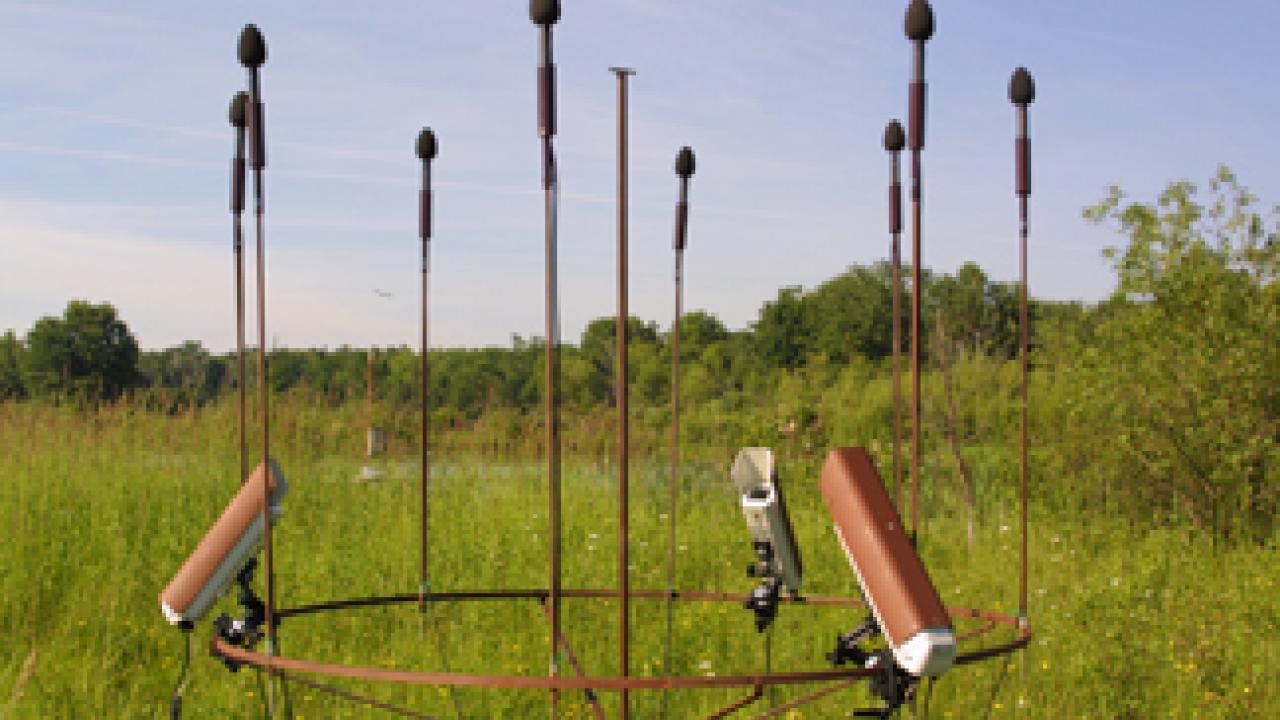Birds’ alarm calls serve both to alert other birds to danger and to warn off predators. And some birds can pull a ventriloquist’s trick, singing from the side of their mouths, according to a UC Davis study.
Many animals respond vocally when they detect predators, but it is not clear to whom they are signaling, said Jessica Yorzinski, a graduate student in animal behavior who conducted the study with Gail Patricelli, professor of evolution and ecology. The birds might be warning others of the threat, but they might also be telling the predator, “I’ve seen you.”
Overall, the birds’ alarm calls (in response to the birds’ being shown a stuffed owl) were relatively omnidirectional, suggesting that they were given to warn other birds in the vicinity. However, the main species tested — juncos, warblers and finches — all showed an ability to focus their calls in the direction of the owl, so these calls could also function to warn off predators.
House finches were the least directional in their calls. They are also the most social of the species tested, Yorzinski noted.
Some of the birds projected calls in one direction while their beaks were pointed in another.
“It’s like talking out of the corner of their mouths,” Yorzinski said. In some cases the birds may see better sideways than forwards, although Yorzinski also recorded evidence of birds projecting calls both forward and to either side.
“It’s not clear how they’re accomplishing this,” Yorzinski said.
The study was published Nov. 18 in the journal Proceedings of the Royal Society B and was funded by the National Science Foundation.
Media Resources
Dave Jones, Dateline, 530-752-6556, dljones@ucdavis.edu
